CRMSE Colloquia
CRMSE Colloquiums
Information on the next colloquium will be presented
All in-person colloquia are held in Suite 128, 6475 Alvarado Rd., unless otherwise noted. (Suite 218 is at the same address.)
Recent CRMSE Colloquia
|
Anthony Essien (Wits School of Education, Wits University, Johannesburg) Abstract: Examples that teachers choose and use are fundamental to what mathematics is taught and learned, and what opportunities for learning are created in mathematics classrooms. In this presentation, I bring together three frameworks which have been used separately in mathematics education research – variation theory, meaning making as a dialogic process framework, and the notion of interacting/multifarious facets/dimensions within teacher education. The emergent framework consists of a triadic approach to understanding exemplifying practices within teacher education, and in particular, within multilingual teacher education classrooms. Lesson transcript data from an introductory class in probability in one teacher education multilingual classroom is used to illustrate how working with the amalgamated framework conduces to a powerful way of examining the choice and use of examples in mathematics teacher education multilingual classrooms, and how the three frameworks work together to attend to three critical layers involved in the complexity of teaching and learning in mathematics teacher education multilingual classrooms. Biography: Anthony A Essien is an Associate Professor in mathematics Education at the Wits School of Education. He was the Deputy Head of School for Research at the Wits School of Education from June 2020 to September 2022. He was also the Head of the Mathematics Education Division at the same School from January 2017 to May 2021. He is a series editor of Studies on Mathematics Education and Society, and an Editorial Board member of Educational Studies in Mathematics (ESM). He is also an associate editor of the African Journal of Research in Mathematics, Science and Technology Education. He was an elected member of the International Committee (Board of Trustees) for the International Group for the Psychology of Mathematics Education (IGPME) from 2018 to 2022. Anthony also served as an associate editor of Pythagoras (the academic journal of the Association for Mathematics Education of South Africa) for 11 years. His field of research is in language issues in the teaching and learning of mathematics from primary level to teacher education. His most recent book is Multilingual Yearbook 2021: Policy and Practice in STEM Education contexts. In addition to his background in mathematics education, Anthony also has a background in Philosophy.
|
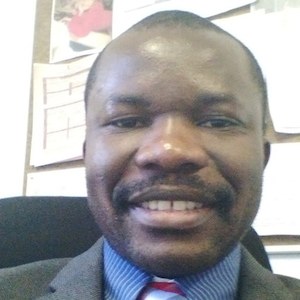 |
|
|
David Quarfoot (University of California, San Diego) Abstract: After a decade of teaching in small and medium-sized class environments, I took a job as a Teaching Professor in UCSD’s Mathematics Department. In this setting, I regularly teach large classes (80-400+ students) in both mathematics and statistics. This talk is a reflection of what I’ve learned over the last 20 quarters and what I wish I knew on day one. I explore the challenges and benefits of large classes, offer thoughts on aspects of pedagogy, discuss the consequences of working in large physical spaces, and think through the probabilistic realities of such courses. This talk is not a survey of the research about large classes, but rather, an in-the-trenches reflection by someone who lives it daily. This talk is co-sponsored by CRMSE, the College of Sciences, and the Center for Teaching and Learning.
|
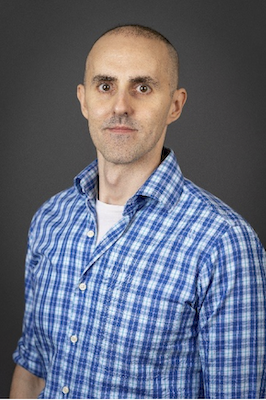 |
|
|
Nate Brown (Penn State University) Abstract: I'm a theoretical mathematician by training, but in 2016 a stunning paper convinced me to learn about education research. Specifically, (in)equity-in- education research. In this talk I'll discuss my journey, including a few of the many challenges, and describe the development of a measure of inclusive instructor behaviors in undergraduate math classes.
|
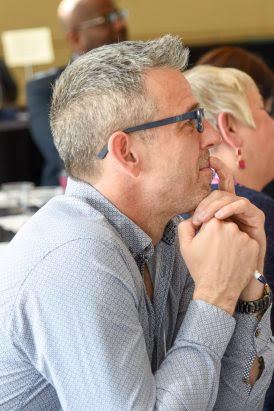 |
|
|
Debra Carney (Colorado School of Mines) Abstract: In this presentation, I talk briefly about my path to a teaching faculty position in the Applied Mathematics and Statistics AMS Department at the Colorado School of Mines (Mines), describe the teaching faculty position and the supportive culture around teaching at Mines, and discuss three recent SoTL projects. The Colorado School of Mines is a medium-sized public R1 research university located in Golden, Colorado that is focused on science and engineering. Every undergraduate student at Mines takes the three-course calculus sequence (I, II, and III) and ordinary differential equations as required courses. The SoTL projects that I describe in this talk include: (1) a team-based approach to developing a partially flipped linear algebra class; (2) a calculus II course redesign and supporting faculty through pedagogical change; and (3) a study of course coordination in the AMS department. The first two projects on linear algebra and calculus II have resulted in PRIMUS (Problems, Resources, and Issues in Undergraduate Studies) publications, and the third project on coordination is still in progress.
|
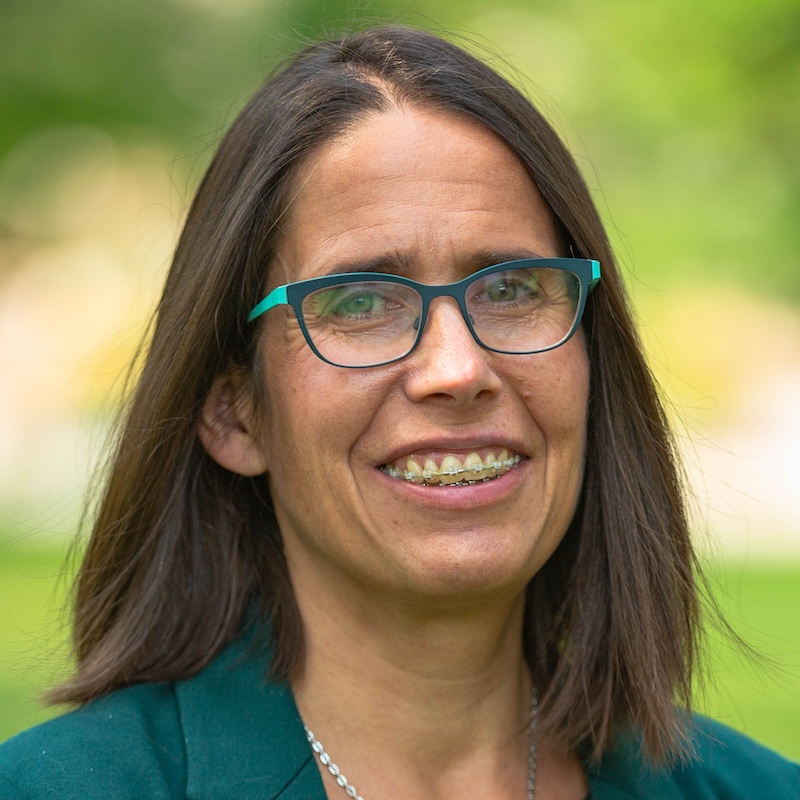 |
|
|
Lena Wessel (Paderborn University, Germany) Abstract: Pre-service teachers often see little to no relevance in their mathematical content courses for their future mathematics teaching. Looking at the situation in Germany, content courses often get poor evaluations and students drop out from mathematics teachers’ programs especially for high school level. In order to make mathematics teaching more meaningful for students, course designers currently put huge development efforts in their teaching designs and suggest “bridging courses” or “bridging tasks” for making more explicit how abstract university mathematics relates to the future mathematics teaching. So far, however, the thereby initiated learning processes are still highly under-researched. This is why we draw on a topic-specific design research approach and apply a framework of “knowledge reshaping” for also taking into account the initiated learning processes. In the talk, I will show how we formulated our design principles and give insights into the teaching material which was tested in laboratory design experiments with future teachers in their master’s program. First results of in-depth analyses of the learning processes will be presented and discussed.
|
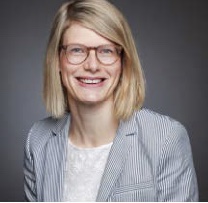 |
|
|
Gena Sbelglia (CRMSE, SDSU) Abstract: Undergraduate biology education needs to change if we are going to improve learning outcomes, meet the needs of diverse learners, and inspire a future generation of scientists that are representative of the nation. Achieving this change requires the integration of measurement, cognition, curriculum design, and equity-aligned frameworks. In this talk, I provide an overview of my work on biology thinking and learning and discuss how I leverage this work to improve outcomes in gateway biology.
|
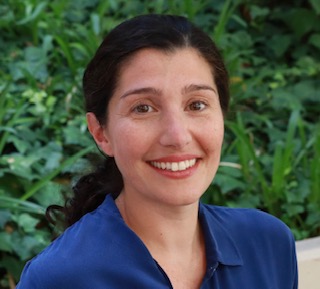 |
|
|
Mogege Mosimege (University of the Free State, Bloemfontein, South Africa) Abstract: Research on Ethnomathematics and its use in the teaching and learning of mathematics has been conducted over the past 40 years. The results of many of these studies indicate that students (learners) in mathematics classrooms find the use of ethnomathematical approaches helpful in the understanding of various mathematics concepts. Some of the results of the studies indicate that even though there is increasing evidence of the usefulness and importance of ethnomathematical activities and approaches, some of the teachers are struggling to integrate such approaches in their classroom practices. This talk covers the following:
Profile: Mogege Mosimege is currently working as a Professor of Mathematics Education and the ETDP SETA Research Chair in Mathematics Education at the University of the Free State in Bloemfontein, South Africa. He served as the Head of the School of Mathematics, Natural Sciences and Technology Education in the Faculty of Education from 2019 to March 2022. He has also worked as Chief Research Specialist and Director of Research at the Human Sciences Research Council and University Registrar at the University of South Africa. He holds and MA in Mathematics Education from Eastern Illinois University, an MSc in Science Education from Wits University, and a PhD in Mathematics Education from the University of the Western Cape. His Research interests are: Ethnomathematics, Mathematical Modeling, Assessment in Mathematics, and Indigenous Knowledge Systems.
|
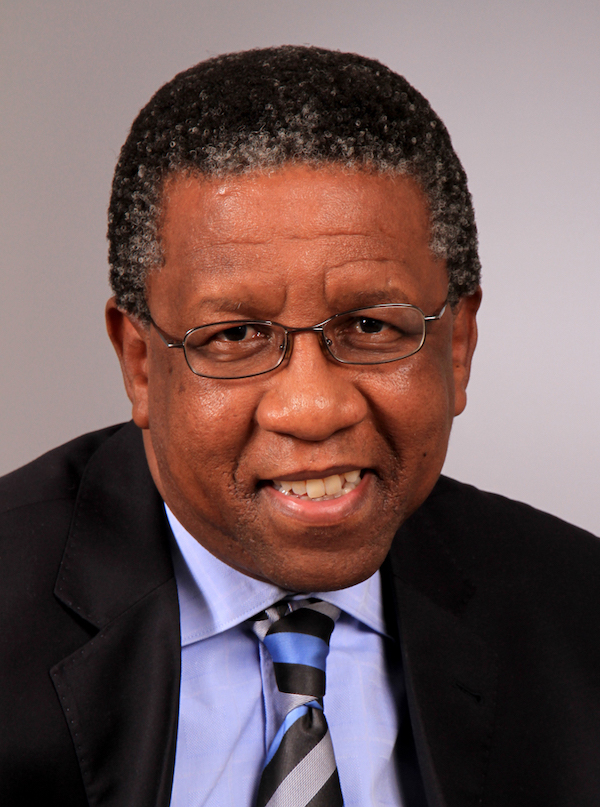 |
|
|
Miranda Parker (SDSU / CRMSE) Abstract: In this talk, I provide an overview of the computing education landscape and motivate why we should make computer science more accessible to all students. I present the various ways that I work towards this goal in my research, including increasing access, improving assessments, and supporting positive outcomes in the classroom. I provide a primer for understanding computer science education research, highlighting key findings while also tying in my own research. By the end of this presentation, audience members should be able to walk away with examples of what computer science and computer science education research are and why they are valuable here and now.
|
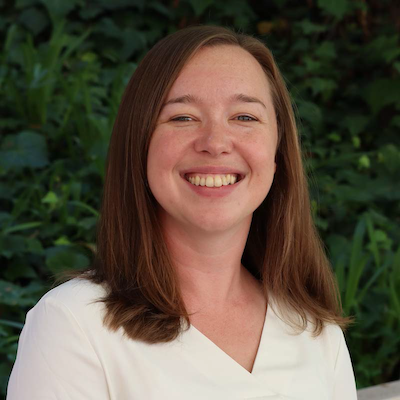 |
|
|
Stacey Zimmerman (Virginia Commonwealth University) Abstract: A teacher’s mathematical knowledge for teaching (MKT) has been shown to be a significant factor in predicting student outcomes and positively related to the quality of mathematics instruction. Yet researchers have almost exclusively focused on elementary teachers’ MKT, leaving very little understanding of MKT for secondary teachers. In this talk, Dr. Zimmerman will present her findings from an exploratory, multi-case design study that investigated the realms of knowledge used by expert mathematics educators when engaging with student quadratic function work. Findings from the study specifically address the nature of secondary MKT for teaching quadratics while study approaches address engagement with student written work and the needed assimilation of MKT research to advance secondary MKT understanding.
|
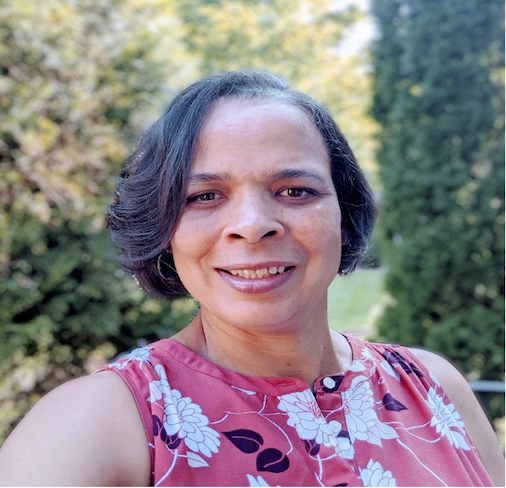 |
|
David Fifty (Oregon State University) Abstract: Traditionally, post-secondary developmental mathematics courses have strived to equip students with mathematical content knowledge needed to succeed in subsequent STEM courses. However, it is critical that such emphasis be coupled with deliberate attention to developing higher-order skills such as argumentation, reasoning, and flexibility in mathematics problem-solving. In this talk, I will share some of the findings of my mixed-methods dissertation project that incorporated a semester-long teaching experiment which aimed to support students' development of higher-order skills by utilizing instructional interventions to facilitate more productive mathematical engagement. Engagement was then characterized by the classroom norms that evolved over the course of the semester. Results show that deliberate attention towards negotiating productive classroom norms and students' in-class engagement can positively affect students' attitudes towards flexible knowledge in mathematics problem solving. This project also highlights the perpetuation of students' beliefs (some of which were unproductive) and their influence on the development of classroom norms. The talk will illustrate this study's contribution to furthering the theoretical relationships between classroom norms, and make suggestions for the practice of teaching developmental mathematics courses.
|
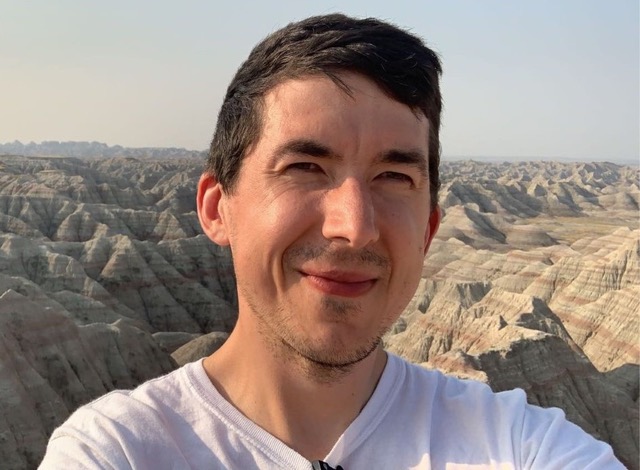 |
|
Charles Wilkes II (SDSU / CRMSE) Abstract: The talk addresses the question “How do Black learners describe what it means to be smart in a summer mathematics program." The study is a multi-case study of 5 fifth-grade Black learners. In the talk I describe both the different conceptions learners had as well as the complexity of those conceptions. Implications of these work include methodological considerations for capturing student’s conceptions (epistemology) and the heterogeneity within studying Black learners. Charles Wilkes is a postdoctoral researcher at CRMSE working on the Math Persistence through Inquiry and Equity (MPIE) project. His work focuses on the experiences of Black learners in mathematics and equitable teaching practices. Specifically, his work has focused on Black learners’ conceptions of smartness, how Black learners are positioned in mathematics courses, and how teachers signal messages about smartness through their practice.
|
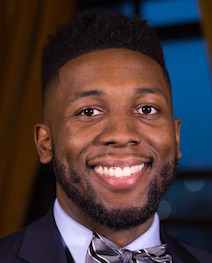 |
Past CRMSE Colloquia
Click on colloquia titles to download abstracts. Click on the links below the entries for Josephine Relaford-Doyle & Rafael Núñez, Saúl Maldonado & Melissa Navarro, Leslie Banes, and Judit Moschkovich to view the videos of their talks.
| Ximena Cid (CSU Dominguez Hills) The Demographics of PER: Where We Are At and What Needs To Change Friday, March 26, 2021, 11:30 AM-12:30 PM. Webinar via Zoom |
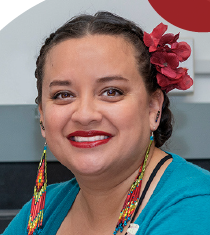 |
| Melissa Navarro (SDSU / CRMSE) Critical Science: Decolonizing Science Education with Bilingual Students and Teachers Friday, December 4, 2020, 12:00-1:00 PM. Webinar via Zoom |
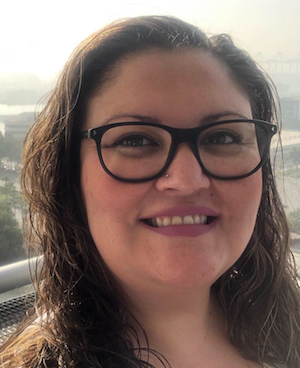 |
| Kathleen Schenkel (SDSU / CRMSE) Exploring Student's Authority in Science Classrooms Through Participatory Planning and Learning Friday, October 30, 2020, 12:00-1:00 PM. Webinar via Zoom |
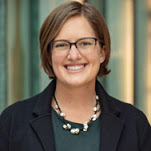 |
| Samer Haber (Lebanese American University) Resilience through Teaching Innovations Friday, January 31, 2020 12:00-1:00 PM. Suite 218 |
 |
| David Barner (UC San Diego) Language, Perception, and the Conceptual Origins of Arithmetic Friday, December 13, 2019 12:00-1:00 PM. Suite 218 |
 |
| Nick Johnson (SDSU / CRMSE) Unpacking Competence as a Lens for Understanding Learning and Teaching in Classrooms Friday, October 4, 2019 11:00 AM-12:00 noon. Suite 218 |
|
| Cathery Yeh (Chapman University) Foregrounding Dis/ability in Mathematics Education: A Call for Culturally Responsive and Relational Inclusion Friday, May 10, 2019 12:00-1:00 PM. Suite 218 |
 |
| Regis Komperda (SDSU/CRMSE) Unpacking Active Learning: Modeling how constructivist learning environment factors influence student outcomes in undergraduate chemistry courses Friday, March 15, 2019 12:00-1:00 PM. Suite 218 |
 |
| CRMSE Brown Bag Thomas Carey (CRMSE), Joel Dmitruk, and David Carey Design Thinking in Secondary Schools as a Foundation for Professional Work Wednesday, January 30, 2019 12:00-1:00 PM. Suite 218 |
 |
| María S. García González (Autonomous Univeristy of Guerrero, Mexico) The Emotional Knowledge of Mathematics Teachers Monday, June 11, 2018 11:00 AM-12:00 PM. |
 |
| Sherice Clarke (UCSD) The Process of Change: Examining Teacher Growth in Orchestrating Dialogic Science Discussions Friday, April 20, 2018 1:00-2:00 PM. |
 |
| Sinem Siyahhan (CSU San Marcos) Families at Play: How Video Games Support Family Connection and Learning Friday, March 9, 2018 1:00-2:00 PM. |
 |
| Lena Wesel (University of Education, Freiberg) Insights into Design Research on Language-responsive Mathematics and Tertiary Mathematics Education Monday, February 26, 2018 12:30-1:30 PM. |
 |
| Yasemin Copur-Genturk (USC Rosssier School of Education) Key Professional Development Strategies for Teacher Knowledge Growth Friday, February 16, 2018 12-1 PM. |
 |
| Paola Sztajn (North Carolina State University) Research, Professional Development, and Research on Professional Development in Mathematics Education Friday, January 26, 2018 12:30-1:30 PM. |
 |
| Cliff Konold (University of Massachusetts) Conceptions of and Tools for Handling Multi-level Data Friday, October 13, 2017 12:30-1:30 PM. |
 |
| Josephine Relaford-Doyle & Rafael Núñez (UCSD) When does a ‘visual proof by induction’ serve a proof-like function in mathematics? Friday, April 21, 2017 1:00-2:00 PM. |
  |
| Saúl I. Maldonado & Melissa Navarro (SDSU) Cultivating English-language learners’ competence in mathematics and science Friday, April 14, 2017 1:00-2:00 PM. |
  |
| Yannis Liako (CRMSE Visiting Scholar, Universitetet i Agder) Mathematical Modelling and Mathematical Competencies: The case of Biology students Wednesday, March 22, 2017 12:00-1:00 PM |
|
| Sei Jin Ko (SDSU, CRMSE) Effect of Female Peer Role Models on Math Students' Sense of Belonging and Self Efficacy Friday, March 17, 2017 1:00-2:00 PM. |
 |
|
Click here to view Sei Jin Ko's talk on YouTube.
|
|
| Brian Katz (Augustana College) Epistemologies of Mathemetics Thursday, February 16, 2017 12:00-1:00 PM. |
 |
| Elizabeth van Es (UC Irvine) Pre-service Teachers’ Noticing Practices of Ambitious Instruction Friday, February 3, 2017 12:00-1:00 PM. |
 |
|
Matthew Voigt (SDSU, MSED) |
 |
| Daniel Reinholz (SDSU, CRMSE) Sustainable Change: Making STEM Education Transformations Last Friday, December 2, 2016 1:00-2:00 PM. |
 |
| Leslie Banes (UC Davis) Exploring Mathematical Writing in Linguistically Diverse Classrooms Friday, November 18, 2016 1:00-2:00 PM. |
 |
| Judit Moschkovich (UC Santa Cruz) A Socio-cultural Approach to Academic Literacy in Mathematics for Adolescent English Learners Thursday, October 27, 2016 4:30-5:30 PM. |
|
|
Dustin Thoman (SDSU, CRMSE) |
 |
|
Carolina Guerrero-Ortiz (Pontifica Universidad Católica de Valparaíso, Chile) |
 |
| Catherine O'Connor (Boston University) Participation in classroom discussion and learning outcomes Wednesday, May 25, 2016 4:00-5:00 PM |
 |
| David Marx (CRMSE, SDSU) How peer role models protect women’s math test performance under threat Friday, April 29, 2016 1:00-2:00 PM |
 |
| Julia Aguirre (University of Washington, Tacoma) Beyond reform mathematics: Preparing culturally responsive mathematics teachers to cultivate a more just and equitable mathematics education Thursday, March 17, 2016 2:00-3:00 PM |
 |
| Zandra de Araujo (University of Missouri), Sarah Roberts (UC Santa Barbara), Craig Willey (Indiana University–Purdue University Indianapolis), and William Zahner (SDSU) Implementing Cognitively Demanding Mathematics Tasks with English Learners: Prior Research and New Directions Friday, February 26, 2016 12:30-2:00 PM |
|
| Francesca Ferrara and Giulia Ferrari, University of Torino, Italy, Time-lapse of a learning assemblage: How coordination and agreement inform movement in technology-based activities in the mathematics classroom Thursday, February 11, 2016 1:00-2:00 PM |
  |

